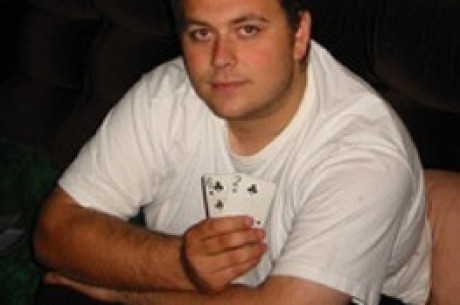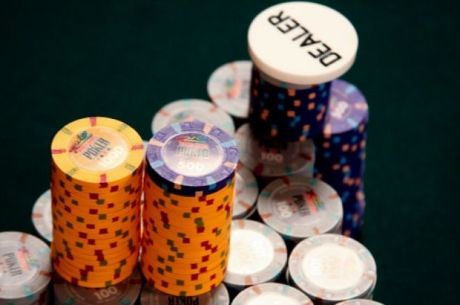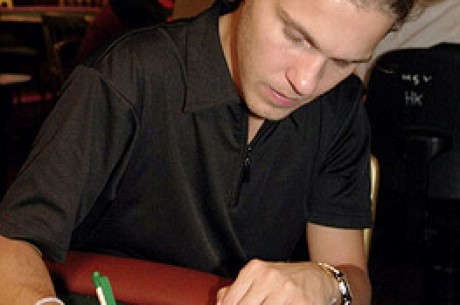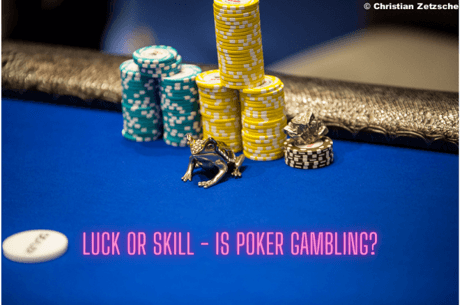Middle Pocket Pairs
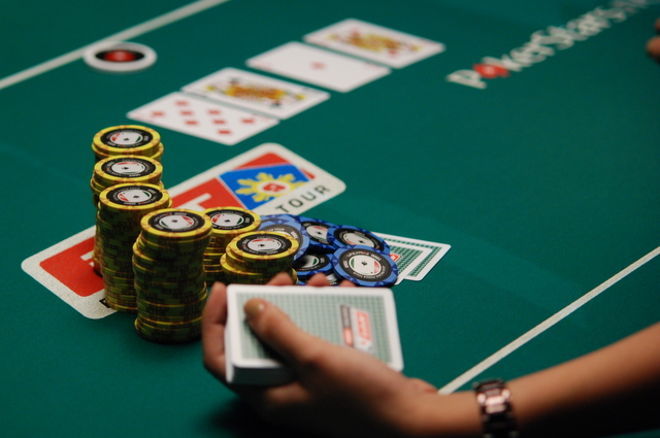
Most players admit that middle pocket pairs are the trickiest hands to play. I have found that most of my opponents make two common mistakes with middle pocket pairs. First, many make incorrect decisions before the flop. Second, many make incorrect decisions when there is an overcard to their pair on the board.
Making the winning play usually requires you to accurately put your opponents on a hand. However, even if you have trouble reading opponents, your position and the number of opponents in the pot should significantly influence your decision making.
A quick note: "Middle pocket pairs" are pocket pairs between 8s and Jacks. However, much of what I am about to discuss can apply to 7s and Queens.
When to discard middle pairs before the flop
Keep in simple, stupid! Middle pocket pairs should be folded before the flop when it is extremely obvious that you are up against a higher pocket pair. I understand that some players are afraid of making a mistake and giving their opponent credit for a hand like KK and later discover that they folded their 9-9 to an unsuited AQ. Do not be deterred.
All players, including the best of the best, occasionally misread a situation and accidentally throw away the better hand. In my opinion, accidentally throwing away the best hand every now and again shows that you are a sensible, disciplined player who is prepared to act on your read of another player. Moreover, when I am outmanoeuvred before the flop and throw away a pair of 10s, I usually find that I am only slightly wrong and my opponent held a good hand like AK suited. In that case, I am only a marginal favourite anyway.
In summary, if there is a lot of pre-flop reraising with three or more opponents in the pot and/or the reraiser is a tight player with high pre-flop standards, strongly consider folding.
When to raise with middle pairs before the flop
Most players make the mistake of automatically raising with middle pocket pairs, simply because they are middle pocket pairs. Raising with J-J or 10-10 before the flop should be reserved for situations where you are able to thin the field. These pocket pairs generally play well against one or two opponents. As soon as there are more than three opponents in the pot, middle pocket pairs are less likely to hold up without improvement.
Therefore, if you are in an early position and no one has called, you should go ahead and raise. Similarly, if you are in middle or late position and there is no more that one caller in the pot (aside from the big blind), you should raise and try to get it heads up or three handed.
If you are placed in a position where a reraise will almost certainly get it heads up, go ahead and reraise. However, if you reraise and more than two opponents call, be very careful after the flop.
In short, you raise for one purpose only: to thin the field. If your raise fails to thin the field, especially when you are in an early position, you should play very conservatively after the flop and be prepared to fold.
When to call with middle pairs before the flop
If a raise will not thin the field or there are more than two opponents in the pot already, simply call. Consider that calling with middle pocket pairs ends up being a terrific move when you flop a set in a multiway pot, because you have deception on your side and you're usually a very big favourite.
More to the point, with many players in the pot, your odds of success are significantly reduced. If you call and the flop contains overcards, you can fold cheaply. Many players raise and reraise with hands as weak as 8-8. Further, their preflop raising over-commits them to the pot and they will frequently bet or call on the flop when it is painfully obvious that they are behind. It would appear that they are hoping for a miracle 8 on the turn which rarely eventuates.
Many players would argue that you should raise before the flop in a late position with middle pocket pairs, even if two players have already entered the pot. There is some merit to that point of view. However, I find that a raise never knocks out the players who have already called. Since these preflop callers didn't raise themselves, my automatic presumption is that they hold reasonable hands, but want to see the flop cheaply. For example, if two preflop callers hold Q-10 and A-9 suited; and I hold 10-10, the preflop probabilities are as follows: Q-10 will win 25% of the time; As-9s will win 31% of the time; My 10-10 will win 44% of the time.
As such, my opponents will collectively win more often (56%) than I will (44%). If I raise in this situation, I am raising a pot that I will lose more often than I will win. Furthermore, if there are three opponents taking the flop, my chances of winning drop from 44% to around 33%, even if the third opponent holds two undercards to my pair. As such, call before the flop if it is multiway. Reserve your aggression for a favourable flop and fold cheaply on an unfavourable flop.
Also bear in mind that calling will hopefully keep the pot small. If you only call with 9-9 and an opponent has AJ, they may consider folding on a flop of 4-6-7 when you come out betting. Even if they don't fold on the flop, they will strongly consider folding on the turn without improvement. However, if you raise before the flop, this opponent may simply call you all the way to the river and try to "chase you down." Why? Because your preflop raise has inadvertently over-committed this opponent to the pot. You do not want any opponent to chase you all the way to the river with two overcards.
There is another great advantage in calling before the flop when there are two players already in the pot: you encourage opponents to obviously play their hands. If I call in the above three-handed situation and the flop comes A-6-3, the opponent holding As-9s will probably come out betting because there was no pre-flop raise. As such, they will immediately give their hand away and you can fold very cheaply. If you raise before the flop, the player is A-9 is likely to check to you on the flop and call if you bet. As a result, you will not get any information about the strength of his/her hand. Better to call before the flop and let your opponents give you the information you need.
The flop
If there is no raise before the flop, playing the flop is a relatively mechanical process. If an overcard comes on the flop and one opponent bets into me, he/she is usually telling me that they hit the overcard and my pocket 10s are only a 9% chance of winning. In this case, I will fold immediately. Similarly, I will lean towards folding when there is a bet and a call before it's my turn to act. Of course, I will fold automatically if the flop contains two overcards. Wait for optimal opportunities.
However, if I have position on the field and it's checked to me when there is one overcard on the flop, I will usually bet the flop with the view of checking the turn and river if anyone calls.
If the flop contains under cards, such as 2-6-8, I usually bet or raise straight away to define my hand and build the pot while I'm a favourite. I also hope that a bet/raise on the flop will knock out one or more opponents who may be holding a single overcard. As mentioned above, my opponents will more readily fold if they are not pot-committed with a preflop raise.
So the real issue is how to deal with an overcard on the flop when there was a preflop raise. This is a matter of reading your opponents and being aggressive. If I hold 10-10, flop comes Q-7-4 and the preflop raiser bets out, the first question I always ask myself is: How often does this particular opponent bet on the flop after raising before the flop, even if they didn't hit anything on the flop? I find that many players will pick up a hand like AK, raise before the flop and when the flop comes Q-7-4, they bet out automatically. Is my opponent this sort of player? If so, you should raise and isolate the player holding AK. On a flop of Q-7-4, you are a 75% favourite against AK, so you should try and force other players out the pot and isolating the preflop raiser. If the preflop raiser has position on you and the pot is heads up on the flop, go for a check-raise.
However, if you raise and another opponent calls your raise cold, you can safely put this opponent on a pair of Queens or better. Subsequently, you should usually check and fold on the turn. Sometimes, though, my raise on the flop is called by two opponents, but neither bet on the turn or river and I reach the showdown for free, which is a pretty good outcome, even if you lose.
In other words, you should not call the flop when you believe that you are in front of the preflop raiser and there is an opportunity to knock out other opponents. If you call and a third opponent behind you also calls, you do not know where you are. If someone cold calls your raise on the flop, you have all the information you need. Obviously, if a number of other opponents call your raise on the flop in this situation, you must accept that one of them has paired the overcard and fold at the next available opportunity.
The Turn
If there are no overcards on the board by the turn, continue to bet. If there is one overcard AND you are heads up AND you believe your opponent holds unimproved overcards on the turn (eg. AK unimproved), bet the turn and intend to check the river if he/she calls.
If two or more opponents called your raise on the flop, be inclined to check and fold (if there is a bet) on the turn. Similarly, you should check and fold if another overcard appears and you face a bet on the turn. Don't get too fancy in these situations.
If you have position, raised on the flop and picked up two or more callers, your opponents will frequently check to you on the turn. Check behind them and hope to showdown on the river at no extra cost.
In short, if there is any betting on the turn, I want to be the bettor. If someone else is betting the turn, I usually fold. If you decide, for whatever reason, that a bet on the turn is warranted and you get raised, immediately fold.
The River
The river is simple. If the board is entirely under-cards, you should bet. However, if the top card repeats or a potential straight is there, you may want to consider checking and calling.
If someone bets into you on the river and there is an overcard on the board, they can certainly beat a pair of 10s. Ideally, you should check and hope for a free showdown on most occasions. If someone has paired the overcard, they are unlikely to fold on the river if you bet. If there are two overcards on the board by the river, it is difficult to bet or call an opponent's bet.
Finally, if there was an overcard on the flop and you bet/raised the flop, but checked the turn, calling a bet of the river is a bit tricky. If an opponent bets the river, they usually have paired the overcard. On occasion though, your check on the turn will induce your opponent into bluffing on the river or betting middle pair (which you can beat). As such, you should usually fold, but "follow your gut" if you feel that your opponent is on a steal.

